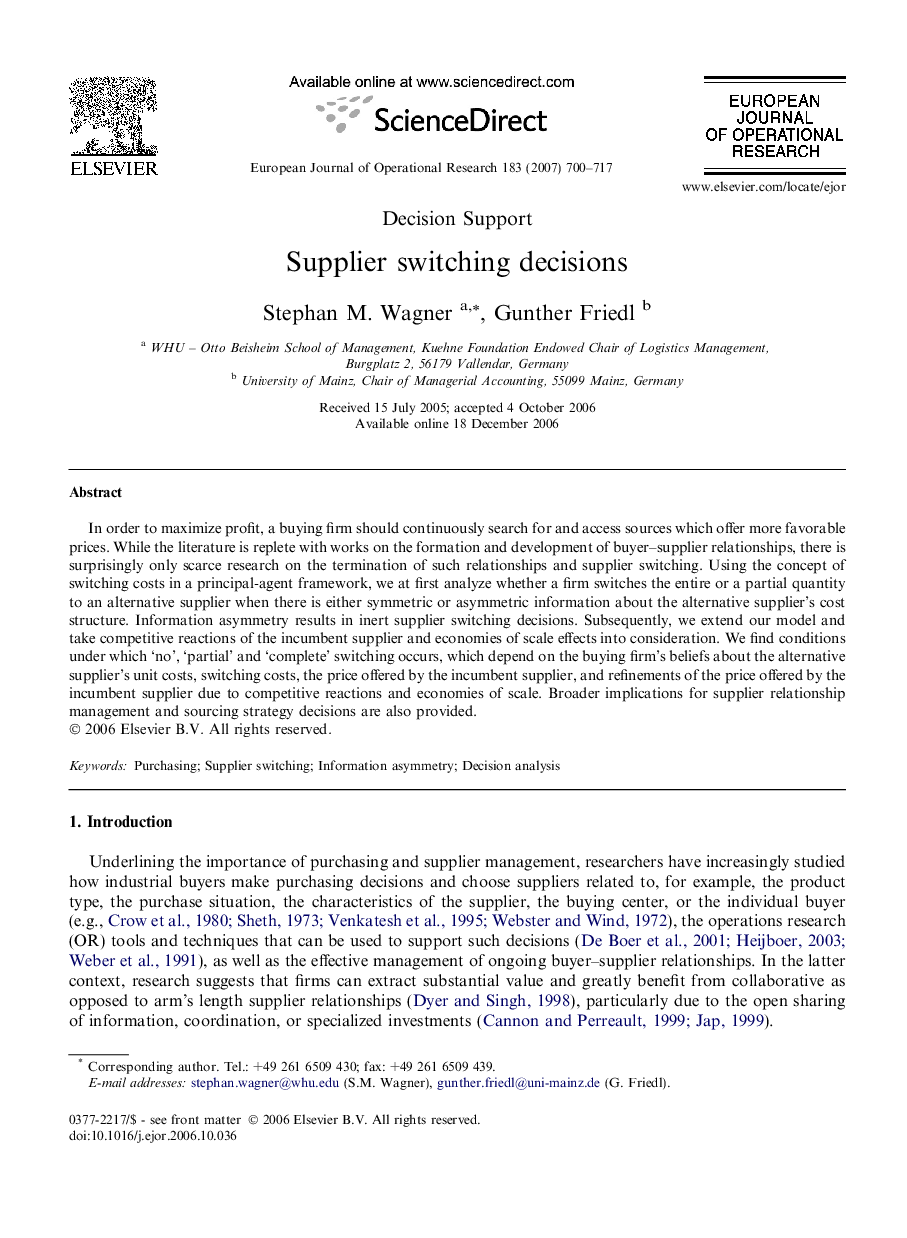| Article ID | Journal | Published Year | Pages | File Type |
|---|---|---|---|---|
| 482314 | European Journal of Operational Research | 2007 | 18 Pages |
In order to maximize profit, a buying firm should continuously search for and access sources which offer more favorable prices. While the literature is replete with works on the formation and development of buyer–supplier relationships, there is surprisingly only scarce research on the termination of such relationships and supplier switching. Using the concept of switching costs in a principal-agent framework, we at first analyze whether a firm switches the entire or a partial quantity to an alternative supplier when there is either symmetric or asymmetric information about the alternative supplier’s cost structure. Information asymmetry results in inert supplier switching decisions. Subsequently, we extend our model and take competitive reactions of the incumbent supplier and economies of scale effects into consideration. We find conditions under which ‘no’, ‘partial’ and ‘complete’ switching occurs, which depend on the buying firm’s beliefs about the alternative supplier’s unit costs, switching costs, the price offered by the incumbent supplier, and refinements of the price offered by the incumbent supplier due to competitive reactions and economies of scale. Broader implications for supplier relationship management and sourcing strategy decisions are also provided.
